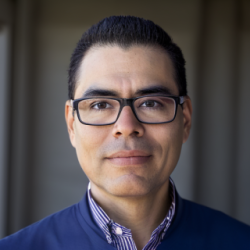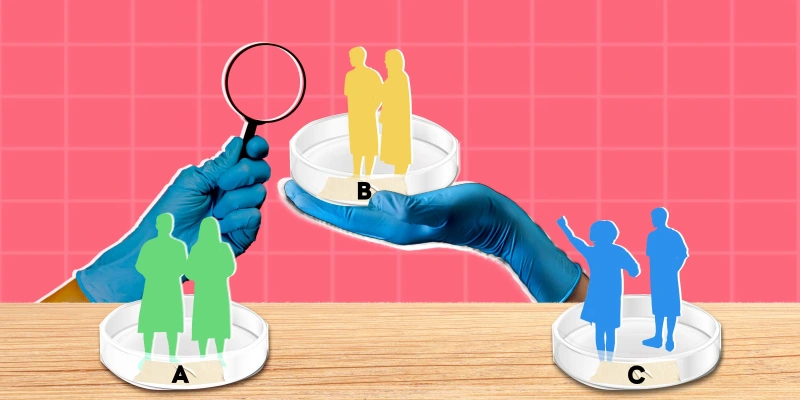Like many medical students, I entered residency eager to make a difference. I chose internal medicine for the intellectual stimulation and the ability to give and prescribe medications that could directly improve patients’ health. But over time, I realized something was missing. My path took an unexpected turn during the COVID-19 pandemic, and by my second year of residency, I knew psychiatry was where I belonged.
Switching specialties is daunting — logistically, emotionally, and professionally. For anyone considering a transition, here are five things I wish I had known before making the switch.
1) Your Interests May Evolve — And That’s OK
I didn’t wake up one day and suddenly decide to leave internal medicine. It was a gradual realization. When primary care moved to virtual visits during the pandemic, I noticed I didn’t miss physical exams, and I loved focusing on conversations. I enjoyed listening to patients, understanding their struggles, and helping them navigate their mental health challenges.
At the same time, I was seeing firsthand how psychiatric conditions affected medical outcomes. I had patients who couldn’t manage their heart failure because depression kept them from taking their diuretics. I started to feel that treating psychiatric illness could be just as impactful — if not more so — than managing diabetes or hypertension.
My own experience with a skilled therapist further reinforced my interest in mental health. The more I learned, the more I realized that psychiatry aligned with what I loved most about medical practice.
2) You Might Face Pushback — But You’ll Also Find Unexpected Support
When I decided to switch early in my PGY2 year, I worried about how my decision would be received. Some faculty were supportive — two internal medicine attendings who had seen me treat patients with mental health conditions encouraged me, and my psychiatry clerkship director from medical school provided a strong letter of recommendation.
But not everyone was on board. I faced resistance from my associate program director and program director, who urged me to reconsider. While this was challenging, I knew I had to advocate for myself. If you’re thinking of switching specialties, be prepared for mixed reactions. Seek out mentors who understand your goals and can provide meaningful guidance.
3) The Transition Process Takes Time — And a Program Director Letter is Critical
Once I decided to switch, I embarked on the process of reapplying through ERAS. I also emailed a lot of programs. This process as a whole meant securing new letters of recommendation, writing a new personal statement, and contemplating having to face the Match process all over again.
One of the biggest lessons I learned? Getting a letter from your program director (PD) is non-negotiable. Even if your PD isn’t enthusiastic about your transition, you won’t get interview invites without their letter of recommendation. Start that conversation early. And if you’re interested in a specific program, don’t hesitate to reach out directly — many PGY2 psychiatry spots are never officially advertised.
4) You Might Worry About Losing Skills — But You’ll Also Bring Unique Strengths
One of my biggest fears about switching specialties was that I’d become rusty during my time away from clinical work. The timing worked out such that I was away from clinical practice for 10 months! Would I forget the medicine I had spent a year mastering? Would I feel like an outsider in psychiatry?
But when I started my new residency, I quickly realized that my internal medicine training was an asset. On a med-psych unit, I felt comfortable managing complex medical issues without needing to call frequent consults. My background gave me confidence, and I saw firsthand how a strong grasp of medical conditions enhances psychiatric care. If you’re switching from internal medicine, know that your skills will still be valuable — you’re not starting over; you’re building on what you already know. When it came to learning the fount of knowledge necessary to practice psychiatry, at the start of my PGY2 I was upfront about having transferred, yet a few months in, I didn’t find it necessary to share this disclaimer. It’s understandable to worry about being behind your peers, but trust me when I say you’ll catch on quicker than you think.
5) Remember to Trust Yourself
If you’re considering a specialty change, you might wonder: Will I regret this? Will I miss parts of my old field?
The truth is, no transition is seamless. There were aspects of internal medicine I enjoyed, and there are moments I miss certain aspects of clinical care in medicine. But I don’t regret the switch. Psychiatry allows me to form deeper connections with patients, and during psychiatry residency, I found fulfillment in a way I never had with internal medicine.
If you’re in a similar position, listen to your gut. Reach out to programs, find mentors who support you, and take the leap. Medicine is a long career — there’s no reason to stay in a specialty that doesn’t feel right for you.
Have you ever switched or contemplated switching specialties? Share your experience in the comments!
Alyssa Ehrlich, MD is a board-certified psychiatrist and the founder of USMLE Pro. She is passionate about teaching, mentorship, and helping students struggling with anxiety, ADHD, and other mental health challenges succeed in medical school and residency.
Image by Jorm Sangsorn / Getty Images







